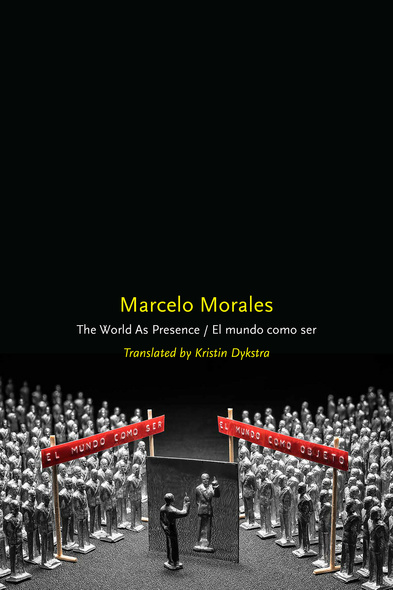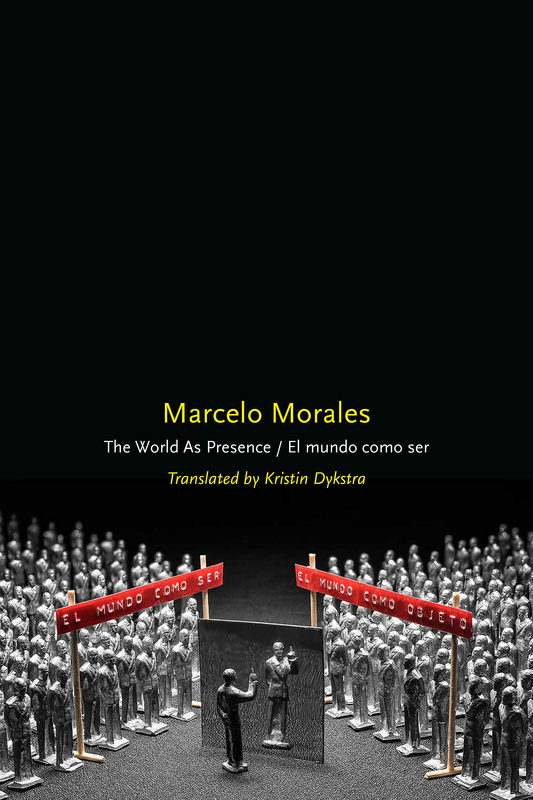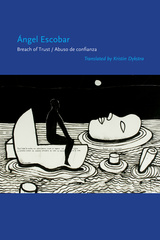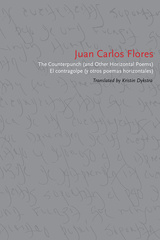The World as Presence/El mundo como ser
University of Alabama Press
Marcelo Morales’s The World as Presence/El mundo como ser showcases, for the first time in English, a challenging, bold, and vivid new voice in Cuban literature.
Marcelo Morales was born in Cuba in 1977. He is an established, prize-winning writer, yet he is younger in comparison to most of the Cuban poets known internationally, many of whom were born prior to the 1959 revolution. While older generations of Cuban poets have wrestled in their work with social and political critique, those critiques have often been articulated through formal experimentation and abstraction, unsurprising given the censorship and the real threats of punishment that dissident writers have faced. Morales, however, directly interrogates both the Cuban past and present. References to many significant moments, people, and issues in Cuban history and culture can be found throughout his work.
Along with references to the activist group “The White Ladies,” the 1976 bombing of Cuban Airlines Flight 455, and the military aid that Cubans provided to Angola during its fight for independence, Morales’s poetry follows a timeline ranging from Martí to Guevara to the day of the 2014 announcement by Obama and Castro that diplomatic relations between the two nations would finally be restored. As Cuba experiences a series of historically remarkable transitions, Morales emerges from this context to offer an incisive poetic account of this critical moment in Cuban, as well as world, history.
The World as Presence/El mundo como ser is both the debut of this work in any language and the first English translation of a complete Morales collection. Given the bilingual format, this book will be of interest both to English and Spanish readers.
Marcelo Morales was born in Cuba in 1977. He is an established, prize-winning writer, yet he is younger in comparison to most of the Cuban poets known internationally, many of whom were born prior to the 1959 revolution. While older generations of Cuban poets have wrestled in their work with social and political critique, those critiques have often been articulated through formal experimentation and abstraction, unsurprising given the censorship and the real threats of punishment that dissident writers have faced. Morales, however, directly interrogates both the Cuban past and present. References to many significant moments, people, and issues in Cuban history and culture can be found throughout his work.
Along with references to the activist group “The White Ladies,” the 1976 bombing of Cuban Airlines Flight 455, and the military aid that Cubans provided to Angola during its fight for independence, Morales’s poetry follows a timeline ranging from Martí to Guevara to the day of the 2014 announcement by Obama and Castro that diplomatic relations between the two nations would finally be restored. As Cuba experiences a series of historically remarkable transitions, Morales emerges from this context to offer an incisive poetic account of this critical moment in Cuban, as well as world, history.
The World as Presence/El mundo como ser is both the debut of this work in any language and the first English translation of a complete Morales collection. Given the bilingual format, this book will be of interest both to English and Spanish readers.
Marcelo Morales is the author of the poetry collections Cinema (winner of the 1997 Pinos Nuevos Prize), El círculo mágico, and Materia (winner of the 2008 Julián del Casal Prize), among others. His novel La espiral appeared in 2006.
Kristin Dykstra, recipient of the 2012 National Endowment for the Arts Literature Translation Fellowship, translated Reina María Rodríguez’s Other Letters to Milena/Otras cartas a Milena and Juan Carlos Flores’s The Counterpunch (and Other Horizontal Poems)/El contragolpe (y otros poemas horizontales), as well as various other books of Cuban poetry.
Kristin Dykstra, recipient of the 2012 National Endowment for the Arts Literature Translation Fellowship, translated Reina María Rodríguez’s Other Letters to Milena/Otras cartas a Milena and Juan Carlos Flores’s The Counterpunch (and Other Horizontal Poems)/El contragolpe (y otros poemas horizontales), as well as various other books of Cuban poetry.









